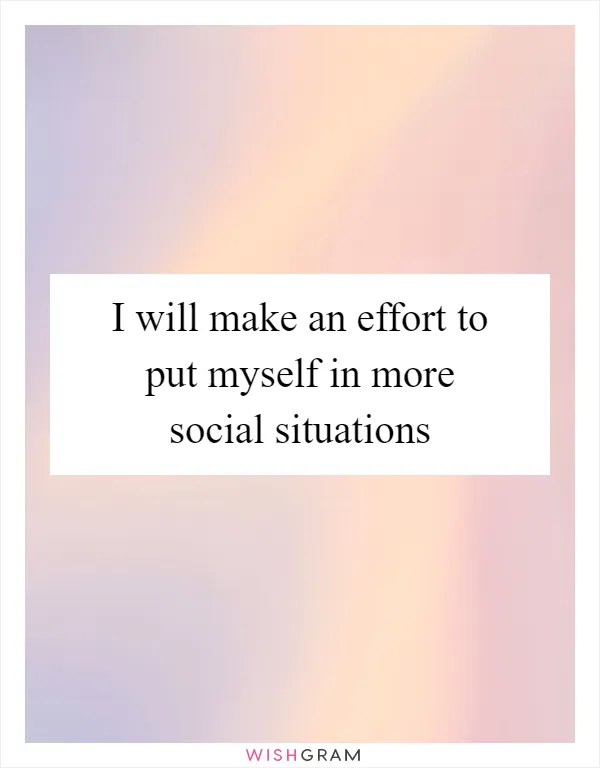I will make an effort to put myself in more social situations
I understand that social situations can sometimes feel overwhelming or uncomfortable for many individuals. However, it is important to recognize the value of developing strong social skills and the positive impact they can have on our personal and professional lives. With this in mind, I want to emphasize the importance of making an effort to put ourselves in more social situations.
By actively seeking out social interactions, we open ourselves up to new experiences, opportunities, and connections. It allows us to expand our social network, meet new people, and build meaningful relationships. Engaging in social situations can also enhance our communication skills, boost our self-confidence, and improve our overall well-being.
One way to approach this is by setting small, achievable goals. Start by attending social gatherings or events that align with your interests or hobbies. This can make it easier to connect with others who share similar passions, making conversations more natural and enjoyable. Additionally, joining clubs, organizations, or community groups can provide a structured environment for socializing and meeting like-minded individuals.
It is important to remember that social skills are developed through practice and exposure. While it may feel uncomfortable at first, pushing ourselves outside of our comfort zones is crucial for personal growth. By gradually increasing our exposure to social situations, we can become more comfortable and confident in navigating various social settings.
Another aspect to consider is active listening. When engaging in conversations, make a conscious effort to truly listen and understand others. This demonstrates respect and empathy, fostering deeper connections and meaningful interactions. Avoid interrupting or dominating conversations, and instead, encourage others to share their thoughts and experiences.
Furthermore, non-verbal communication plays a significant role in social interactions. Pay attention to your body language, maintaining open and approachable postures. Maintain eye contact, smile genuinely, and use appropriate facial expressions to convey interest and engagement. These non-verbal cues can greatly impact how others perceive us and can help create a positive and welcoming atmosphere.
Lastly, it is important to be patient and kind to ourselves throughout this process. Developing social skills takes time and effort, and setbacks are normal. Remember that everyone has their own unique journey, and comparison can hinder our progress. Celebrate small victories and acknowledge the steps taken towards personal growth.
